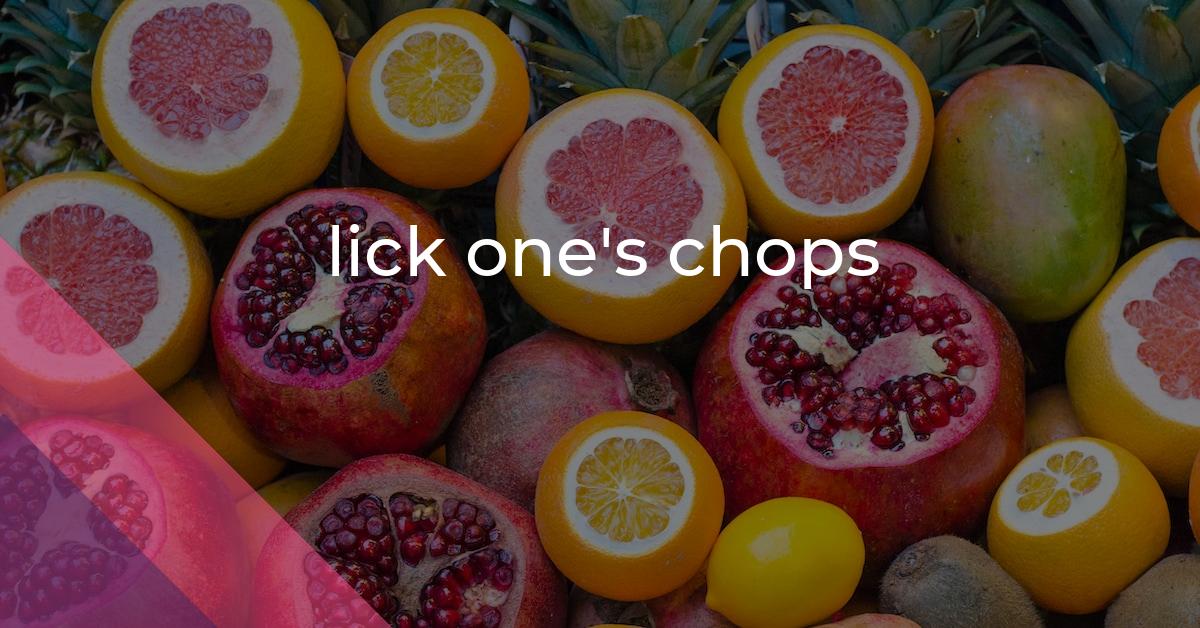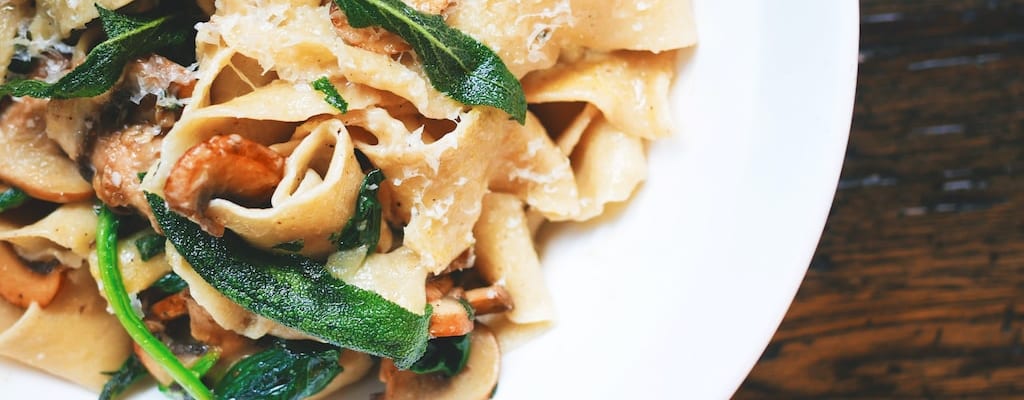lick one’s chops: Idiom Meaning and Origin
What does ‘lick one's chops’ mean?
The idiom "lick one's chops" means to anticipate or eagerly await something, especially with a sense of greed or pleasure.

Idiom Explorer
The idiom "wet one's beak" means to receive a share of profits or benefits, especially in a dishonest or unethical manner.
The idiom "on the edge of one's seat" means to be in a state of excitement, anticipation, or suspense, eagerly waiting for something to happen.
The idiom "one's heart in one's mouth" means to be extremely anxious or fearful.
The idiom "nip at" means to bite or snap at someone or something in a quick and aggressive manner. It can also be used metaphorically to describe criticizing or attacking someone verbally.
The idiom "make someone's teeth itch" means to annoy or irritate someone greatly.
The idiom "make hay" means to take advantage of an opportunity or to make the most of a situation. It implies being proactive, efficient, and seizing the moment to achieve positive outcomes.
The idiom "look over one's shoulder" means to be cautious or fearful of potential danger or competition, often due to a sense of insecurity or paranoia.
The idiom "look forward to" means to anticipate or eagerly await something that is expected to happen in the future.
Delving Deeper
The idiom "lick one's chops" is a common expression used in the English language with a specific meaning and usage. The phrase originates from the image of a person salivating or licking their lips in anticipation of a delicious meal. It is often used to convey a sense of eager anticipation or excitement about something desirable.
This idiom has been in use for many decades, with its earliest known recorded instances dating back to the late 1800s. It has since become a widely recognized expression in various English-speaking countries, including the United States. The phrase has been well-documented in both written and spoken contexts, appearing in literature, journalism, and everyday conversations.
One possible interpretation of the idiom is that it reflects a primal instinct or response related to the enjoyment of food. When someone is said to be excitedly anticipating something, they might be described as "licking their chops." This can apply not only to food but also to any situation or event that is eagerly awaited or desired.
The idiom can be used in a variety of contexts, both literal and figurative. In its literal sense, "licking one's chops" can describe a person visibly displaying their excitement or eagerness before a meal or while thinking about food. However, it is commonly used more figuratively to express anticipation or pleasure regarding a future event or outcome.
For example, one might say, "He was licking his chops at the thought of receiving the promotion," indicating that the person was eagerly anticipating and excited about the possibility. Similarly, the phrase can be used in a negative context, such as, "The company executives are already licking their chops, planning to lay off employees," implying a greedy or opportunistic anticipation.
The idiom "lick and a promise" is related to "lick one's chops" in that both expressions involve the act of "licking." However, "lick and a promise" has a different meaning and usage. It refers to doing a task quickly or with little effort, often leaving it incomplete or insufficiently done. The phrase suggests a superficial attempt or a hasty completion without much attention to detail.
When related to the idiom "lick one's chops," "lick and a promise" can be seen as a contrast. While "lick one's chops" conveys enthusiasm and anticipation, "lick and a promise" implies a lack of thoroughness or commitment in completing a task. Thus, these two idioms represent contrasting attitudes or approaches towards something.
The idiom "lick one's wounds" also shares a connection with "lick one's chops," both linguistically and metaphorically. While "lick one's chops" refers to eagerly anticipating and reveling in something desirable, "lick one's wounds" suggests a response to a negative or challenging situation.
When someone is said to be "licking their wounds," it means they are taking time to recover or heal from a setback or defeat. The phrase originated from the behavior of animals, such as wounded dogs or cats, that instinctively clean their wounds by licking them. In a figurative sense, "licking one's wounds" signifies the need to take a break, self-reflect, and recuperate before moving forward.
Thus, the idioms "lick one's chops," "lick and a promise," and "lick one's wounds" present different facets of human experience. "Lick one's chops" captures the excitement and anticipation surrounding something desirable, while "lick and a promise" expresses hasty or incomplete effort. Finally, "lick one's wounds" acknowledges the need for self-care and recovery after encountering difficulties.
The widespread usage and long-standing history of these idioms in the English language demonstrate their resonance with speakers and writers. Whether used literally or figuratively, these idioms continue to serve as colorful and effective means of conveying enthusiasm, anticipation, and resilience.
Example usage
Examples of how the idiom "lick one's chops" can be used in a sentence:
- After seeing the delicious spread of food on the table, the hungry children started to lick their chops in anticipation.
- The athlete's rival team was performing poorly, so he licked his chops, eager for an easy victory.
- The salesperson licked his chops when he saw the customer's interest in the expensive product, as he knew he was about to make a big commission.
More "Anticipation" idioms



